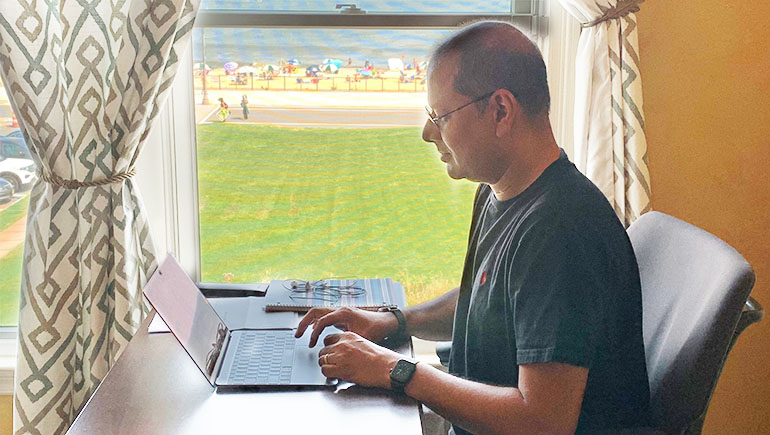
Chief Medical Officer, Global Drug Development, Samit Hirawat, M.D.
Your first year at BMS was eventful to say the least, with the acquisition and integration of Celgene and the global outbreak of COVID-19. What stands out for you as you look back?
It’s been a fascinating journey. I joined BMS knowing it was a time of change but none of us anticipated a year such as 2020. We are delighted with the progress of the ongoing integration and the multiple milestones achieved, but the pandemic will always be the way I will remember this time – there is no way not to. While some of the unknowns were unpredictable, they also offered opportunities to work closely with a phenomenal team of individuals to chart a path that was completely new. To be in a position where we can impact so many lives with our work is a great honor and I never lose sight of that. I’m grateful for the guidance and support that I have received from my colleagues and friends.
How has COVID-19 impacted the company’s drug development program, and clinical trials specifically?
Our attitude at the outset was, pandemic or no pandemic, the diseases we’re fighting are still here. If anything, our commitment to continue this fight had to be intensified because many patients in the therapeutic areas we work in are living with autoimmune diseases or malignancies that impact the immune system, making them even more vulnerable. We were determined to do everything we could to continue our work, while also protecting the health and safety of our patients, our colleagues and our partners.
Of course there were limitations, and the situation is still evolving, but thanks to the tenacity of our colleagues to quickly assess the situation and identify solutions, we have been able to continue the work of our clinical trials and development programs. You see this reflected in the number of product approvals, regulatory submissions and data read-outs in the last six months – as well as clinical trial enrollments. All of this speaks loudly to the dedication of the team and the passion they have for delivering on our commitment and transforming the lives of patients through science. It’s been an incredibly productive first half of 2020 despite these unprecedented challenges.
What were some of the challenges you encountered, and the solutions that overcame them?
Challenges came from every direction, and we had to manage a great deal of anxiety and fear of the unknown. As for the solutions, it starts with having an open mindset: listening more, saying less and trying to understand the needs of the community.
We did a lot of listening – to the physicians, to clinical trial site coordinators and monitors, and to patient advocacy groups. When we learned that patients couldn’t come to clinical trial sites, we utilized telemedicine so they could still talk to their doctors. When we saw patients couldn’t go to central lab locations for tests, we identified a way for them to use labs in their communities. We also evaluated if medicines could be sent to the patient rather than the patient coming to the hospital or pharmacy to collect them.
We pivoted as the situation evolved. Some of the cell therapy clinical trials that required some on-call hospital services had to pause enrollment when hospitals were being overwhelmed with the number of COVID-19 patients. When we saw the situation reversing in some countries, we were able to re-initiate these studies and now these trials are advancing science for patients in need.
Everything comes back to listening carefully and keeping your finger on the pulse as the situation evolves. I am a type of person who is calm in difficult situations; I like to think creatively and focus on what can be done and how can we do it.




